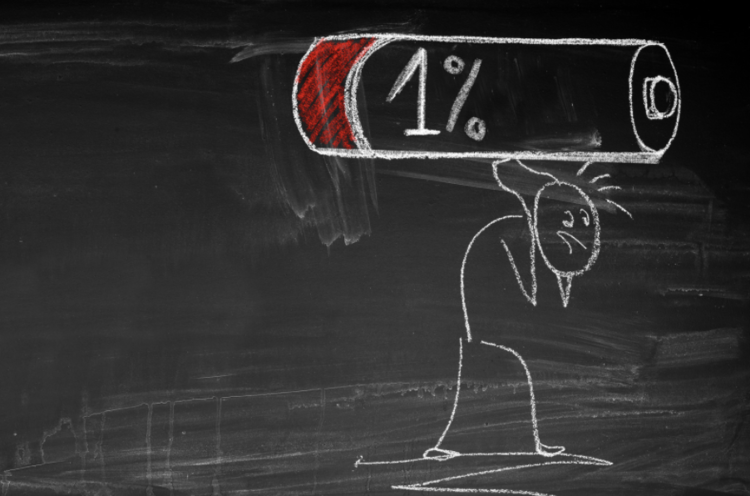Factors that can lead to burnout:
Work-life imbalance
Perceived lack of control in job-related decisions
Dysfunctional workplace dynamic
Lack of social support from family and friends
Unrealistic expectations from higher-ups
Lack of recognition for work done
Long working hours
“I’m burnt out, so what? So is everyone else right?”
Job burnout has significant consequences on both our physical and mental health, e.g. increased vulnerability to illnesses, alcohol or substance misuse, insomnia, and depressive symptoms. Professional consequences such as job satisfaction and absenteeism may arise as well. These consequences have detrimental impacts on our lives and it ought to be taken seriously. Burnout is unlikely to resolve by itself and will only worsen if it is not addressed. It can last from weeks to even years! Therefore, we should take active steps to prevent burnout or address burnout as soon as possible and seek help whenever needed.
Everyone experiences stress at various points in our lives and we know that stress often leads to burnout. If that’s the case, why doesn’t everyone experience burnout? Why do some people get burnt out while others do not?
The secret ingredient is emotional intelligence (EI).
Emotional intelligence is the ability to control the emotions of oneself and others, to distinguish them from each other, and to apply this information to guide one’s own thinking and action. Research has shown that people with high EI tend to better cope with stress and achieve individual success, thereby preventing burnouts, while people with low EI are more likely to experience burnouts.
Understanding Burnout: The Role of Emotional Intelligence and How it Helps Prevent Burnout
1. The ability to accurately perceive, assess, and express emotions
Being self-aware of your emotions helps in understanding the sources of your feelings, attitudes, and rationales, as well as their effect on others. This will enhance your ability to seek different responses and avoid pent-up negative emotions that would lead to burnouts.
2. Using emotions to enhance cognitive processes
Changing our perspective of a situation can help relieve stress as we see a troubling issue as just a problem to solve. Directing our negative emotions such as anxiety and frustration into problem-solving mode rather than allowing the situation to affect us during and after work will prevent us from feeling stressed up constantly. The ability to think before you act in an emotional event would allow you to find suitable solutions more quickly and apply emotional resources reasonably, thus minimizing the possibility of failure.
3. The power of empathy
Empathy enables us to recognize, understand, and care about others and their emotional reactions. As we experience the world through others’ perspectives, we enhance our ability to gain trust and influence others. This means that we are likely to find the help we need when our stress level gets out of hand.
4. Regulating emotions to manage stress and preven burnout.
Adjusting our perception of the work environment and the emotional stimuli from the environment enable us to remain calm, control impulses, and behave appropriately under stress. This prevents us from acting rashly or making any impulse decisions. Some people can even regulate the intensity and duration of certain emotional experiences to accomplish what they want to achieve.
“Well, I understand that emotional intelligence is important, but what should I do to cope with burnout? What can I do to manage my emotions?”
Fret not, we’ve got some advicefor you!
Practical Tips to Manage Stress and Avoid Burnout:
Ψ Be kind to yourself: reducing self-imposed pressure
We often put immense pressure on ourselves to do better at work or to seem productive at all times, especially for those who have high expectations of themselves. Many times we overthink or become anxious for situations that have yet to come or might not even happen at all. We understand that sometimes we can't help but place high levels of stress on ourselves, especially in a society that places a great emphasis on performance and to always be prepared. However, it is equally important to treat yourself kindly. We should strive to strike a balance between performance and our well-being. Performance is important, but without you, there can be no performance. We should celebrate our small victories and milestones, not be afraid to take breaks whenever necessary and practice mindfulness when we catch ourselves overthinking or being anxious, as we continue to work hard through our journey.
Ψ Embracing mindfulness to combat burnout
Engaging in mindfulness practices is proven to reduce anxiety and relieve stress, and is increasingly used to reduce the risk of burnouts. Here is an example of a mindfulness activity that you can practice for a few minutes each day: To stay focused on your breath flow, and be fully aware of your senses and feelings at the moment. This can be hard at first, but practice makes perfect! This practice would allow us to face situations with an open mind and remain calm, fully aware of our thoughts and emotions so as to act rationally and come up with suitable solutions.
Ψ Know your limits, managing workload effectively
It is important to know how much workload you can take on just like knowing how much you can eat in a meal. You can get indigestion if you eat too much and similarly, you will suffer consequences when you overestimate your abilities. Discuss with your supervisor to reach a compromisation of work to be done and expectations to be met, or seek help if the demands are beyond your capabilities. Set goals and to-do lists based on the urgency and important matrix to avoid being overwhelmed with work all the time.
Ψ Change your perspective of the situation
Do you perceive the situation to negatively impact the things that you value? Or do you see it as just another problem to solve at work? Reevaluating your perspective to determine whether you are feeling distress or eustress can greatly influence your stress level. An issue that causes you to be stressed out at work can be seen as a challenge to improve yourself that should not bother you after work.
Ψ Seek social support to overcome burnout
Don’t hesitate to ask for help when you need it! Reach out to any of your family members, friends, or co-workers whenever you feel overwhelmed. The support you can get from them might just be what you need to pull through. If your company provides an employee assistance program, don’t be afraid to take advantage of such services. You may also wish to seek professional help with one of our clinical psychologists to help cope with your burnouts or any other issues you have affecting your mental health!
You are not alone. Annabelle Psychology is home to Care for Yourself™ - an employer-funded Employee Assistance Program. This program provides employees and managers with access to counselling and psychological services based in Singapore to help them manage personal and work-based issues. For more information, click here.








